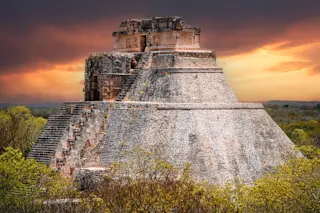Your humble host is attending the World Science Festival today (it's running all week). I'll be a bystander to some of the events, hoping that all the brilliant minds gathered together will stimulate my feeble brain. Probably not. But it should be fun. I noticed at their blog that boingboing's Maggie Koerth-Baker has a real interesting essay, called "A Twist on Climate Change, Risk, and Uncertainty." Here's an excerpt that I think captures her argument (my emphasis):
The trouble with looking at disasters this way is that tornadoes do not fit neatly into little, politically polarized ticky boxes. Science, in general, seldom works like that. In a May 23rd editorial for the Washington Post, environmentalist Bill McKibben took Americans to task for refusing to make a connection between environmental disasters"”including the 2011 tornadoes"”and climate change. His basic message: All these disasters must be connected and only willful ignorance allows us ...













